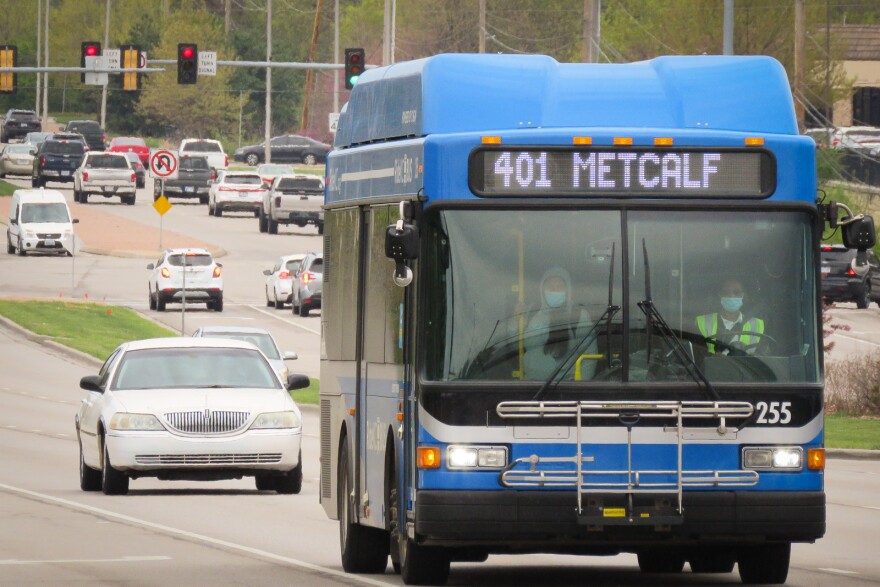The Kansas City Area Transportation Authority (KCATA) has managed Johnson County’s transit system since 2014, but Johnson County commissioners voted unanimously Thursday to bring supervision back to the county under its public works department. The change takes effect Aug. 1.
City officials said riders will not see a change in services because the county will continue to partner with KCATA and use RideKC branding.
“There should be no impact on riders,” 4th District Commissioner Janeé Hanzlick said. “In fact, our goal is that there will be a positive impact, that we are making positive changes.”
Johnson County Board of County Commissioners Chairman Ed Eilert said in a statement that the new plan will benefit both the county and KCATA.
Operating under the public works department will require the recruitment of five full-time employees. Those positions will be funded with money originally slated for KCATA management fees, according to the Shawnee Mission Post.
The announcement comes after the Board of County Commissioners authorized $15.2 million in Federal Transit Administration COVID relief grants in November for transit pilot programs.
“These pilot programs will inform the county how to best adapt for the future of public transportation in Johnson County,” county manager Penny Postoak Ferguson said in a news release. “We believe that direct oversight of these pilots, our existing services and our third-party contracts will be of the utmost importance as these programs are implemented."
According to a November news release, the pilot programs will streamline commuter services, improve fixed routes, provide free paratransit services for “vulnerable populations” and expand the county's ride-hailing program.



